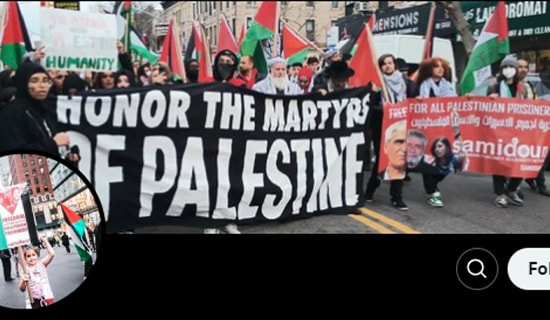In an interview with the Saudi radio station UFM, senior Saudi cleric Sheikh 'Abd Al-Muhsin Al-'Obikan, an advisor to the Office of the King, harshly criticized the kingdom's religious police. He said that some of the members of this institution are former drug addicts and thieves who became devout and now turn their violent inclinations towards preventing vice, instead of operating in the way sanctioned by the Prophet Muhammad. For example, he said, the Prophet instructed people to refrain from spying on others, yet the religious police follows drivers, stops them, and demands that they prove the woman sitting next to them is their wife – behavior that contradicts the directives of Islam. Al-'Obikan added that other government ministries use similarly inappropriate practices, a matter that must be addressed.
The sheikh recommended that, before being allowed on the streets, members of the religious police should undergo intensive training and learn the appropriate way to handle moral offenses, as specified in the religious texts. Also, the boundaries of their authority must be clearly defined, so they do not overstep them.
Finally, Al-'Obikan suggested to incorporate the religious police in a new ministry, called the Hisbah Ministry, which will not only oversee public morals but will also be in charge of supervising business practices, prices, and tax collection.[1] He added that he would like to take part in formulating the regulations of this ministry alongside legal experts and Islamic jurisprudents, stressing that the ministry should be advised by suitably qualified officials. [2]
In response to the Sheikh's proposal, liberal columnist Halima Muzaffar wrote in the daily Al-Watan that the religious police is indeed dangerous and incompetent. She advised incorporating it into the Ministry of Religious Affairs and limiting it to matters of business and trade, while leaving vice-related tasks to the police and the security apparatuses.
The following are excerpts from her article: [3]
Saudi Liberal: The Religious Police is Incompetent, is Never Held Accountable for Its Mistakes
Saudi liberal columnist Halima Muzaffar wrote in the daily Al-Watan: "I was not surprised by what Sheikh 'Abd Al-Muhsin Al-'Obikan... said on the radio... [namely] that some of the members of the religious police were once drug addicts or thieves... I was not surprised, nor were many others, because this is a well-known fact. Unfortunately, this has caused serious mistakes, as a result of which many innocent people died in accidents while being chased through the streets and markets [by the religious police]...
"Sadly, after each of these accidents, we never heard or read that the officers involved had been given a deterring punishment... This is why they make so many mistakes, and why the public has lost its respect for them. Moreover, people have begun to flee them and avoid them wherever they are... fearing to be spied upon and pursued...
"As for Sheikh 'Obikan's suggestion to abolish the religious police [in its present form] and turn it into a hisbah ministry, I agree only with the first part of the proposal, namely with the idea of abolishing it, but disagree with the second part... Why should we turn it into [a new ministry] when we already have a ministry of religious endowments and religious affairs? We should incorporate the religious police in [the latter] ministry and call it the Hisbah Department... [just as] the Authority for Girls' Education has been successfully incorporated into the Ministry of Education...
"[The main task of the Hisbah Department] will be to oversee the merchants and the markets, prevent dishonesty, and collect the zakat tax. They will be very successful at this, thanks to their extreme piety... Instead of spying on people, they will devote their energies to monitoring traders who exploit and rob the public... As for [preventing] vice offenses, I suggest leaving this to the police and the security forces, as is the practice in most Muslim and Arab countries..."
[1] Hisbah is the Islamic principle of commanding good and forbidding evil. Al-'Obikan pointed out that this name is preferable to the cumbersome title by which the religious police is currently known (The Authority for Promotion of Virtue and Prevention of Vice). He also and recommended that the officers of the new department be called muhtasib – the traditional name for a functionary in charge of supervising business practices, standard weights and measures, and public morals.
[2] Alarabiya.net, August 26, 2011.
[3] Al-Watan (Saudi Arabia), August 29, 2011.




